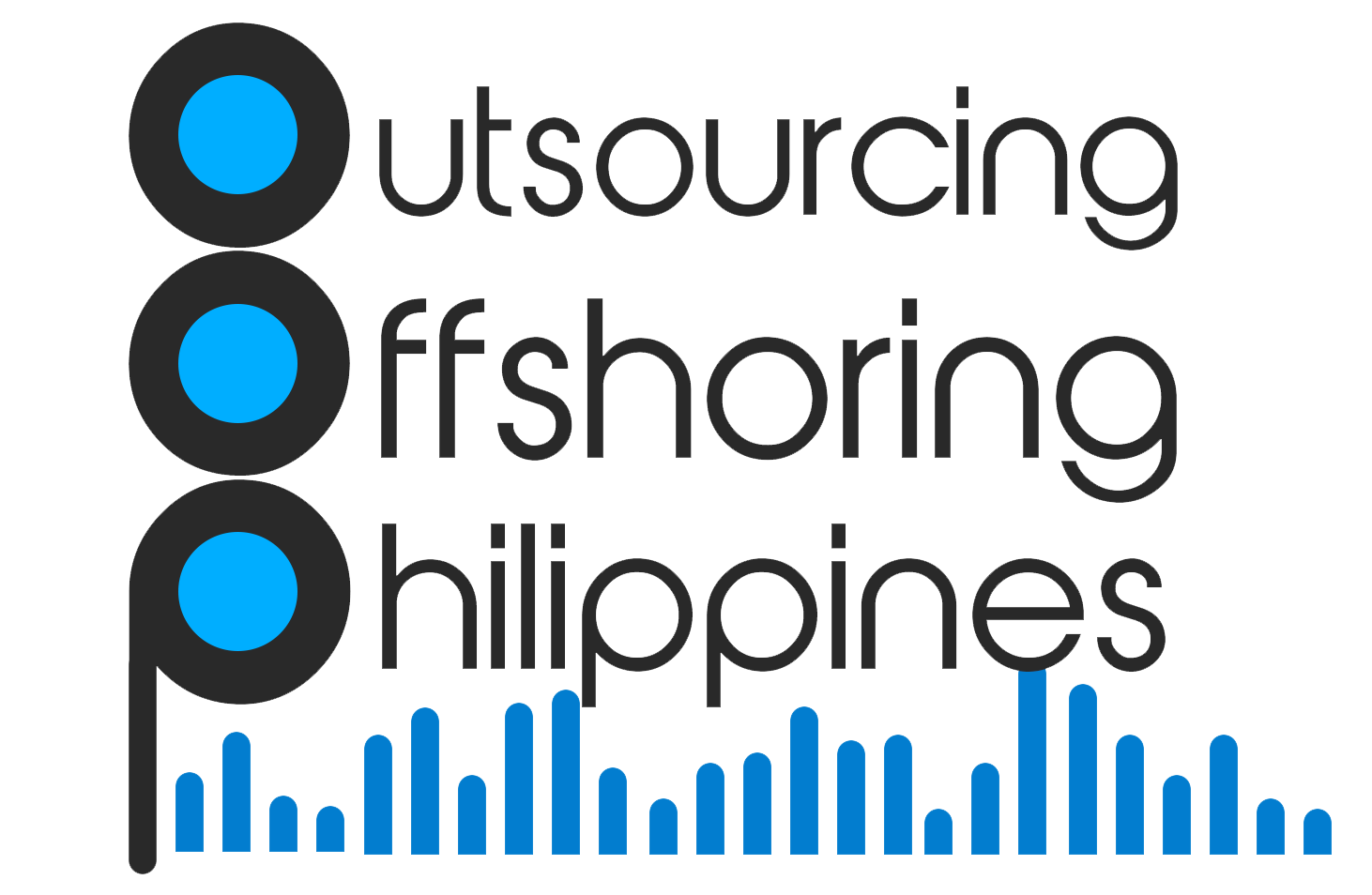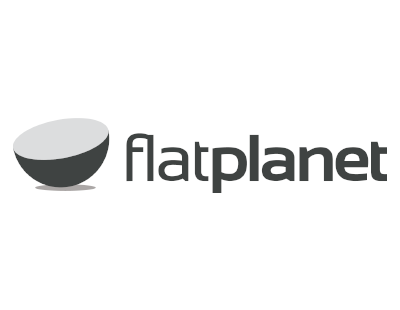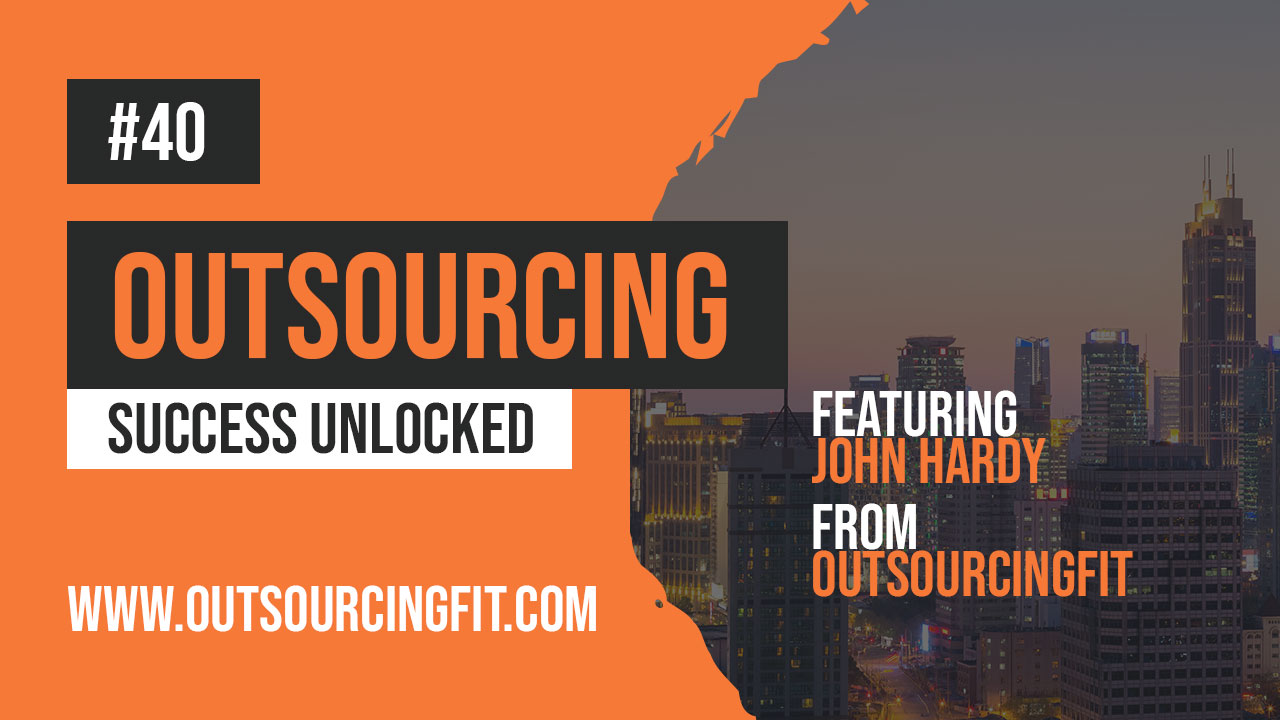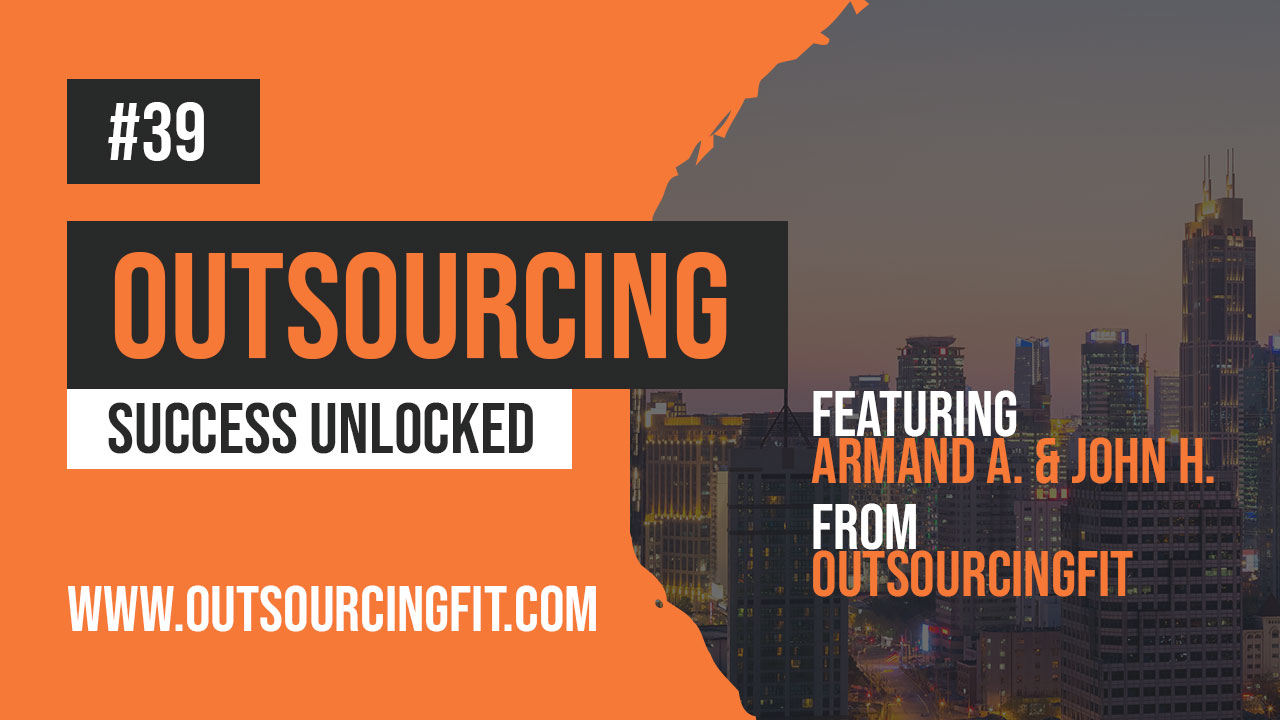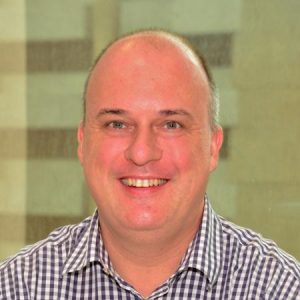 Guest: Chris Moriarty
Guest: Chris Moriarty
Presenter: Henry Acosta
Guest Bio: Chris Moriarty is the founder and CEO of Flat Planet. When he decided to go to the Philippines on a business trip back in 2010, he never expected to build a booming business since he did not know alot about the Philippines. With his expertise and passion for businesses and giving Filipinos a chance to work in a great environment, Flat Planet has shown steady and exponential growth throughout the years.
Segment Overview: Flat Planet is an outsourcing firm that provides high quality talents who bring experience and professional conduct to their clients to give them a competitive edge over their competition. With their core values strongly in place, they look to hire the best of what the Philippines has to offer!
Address:
Australia – Suite 1201, Level 12, 84 Pitt Street, Sydney, NSW 2000, Australia
Philippines – 18/F Robinsons ,Summit Centre, 6783 Ayala Avenue, Makati, Metro Manila 1226, Philippines
Contact:
Australia
Phone: +61 2 8412 8141
Fax: +61 2 8569 1592Philippines
Phone: +63 2 479 1870
Fax: +63 2 479 1555Website: www.flatplanet.com.au
To know more about Flat Planet, listen to the podcast below!
Our talk with Chris Moriarty begins at the 16:05 mark of the podcast.
Transcript
Henry Acosta: This is the Outsourcing and Offshoring Philippines podcast. I’m Henry Acosta, the host for this podcast. Joining us today is Chris Moriarty. Chris is the Founder and the Chief Executive Officer of Flat Planet. He’s been in the Philippines for over 8 years and Flat Planet has been growing since then. Because of the great values that he’s instilled in his business and practice, they’ve been growing a lot the past few years. He’s joining us today to talk about the BPO industry in the Philippines and Flat Planet. Thanks for joining us today Chris. We know you’re busy so we appreciate a time.
Chris Moriarty: My pleasure Henry.
Henry Acosta: Can you tell us a little bit more about yourself and how you found Flat Planet?
Chris Moriarty: Well Henry, we started in late 2010. It’s quite a while ago now. We were initially running a business that was providing outsourced professional services based in Sydney. Obviously, the cost of providing sort of professional business services using a workforce in Sydney was expensive and it wasn’t really a competitive proposition. We were under enormous pressure from people offering services out of markets like the Philippines. Really, it was a big decision to understand that I had to just stay in business. I really had to offer a service out of a market like the Philippines, because I just couldn’t continue to be competitive based in Sydney. We looked at a few markets. We researched. There were three markets we were very interested in potentially going into, there was India and Malaysia and the Philippines and we really had to make a decision about which one of those three markets we were going to invest our future into.
Henry Acosta: What made you guys decide on the Philippines as opposed to doing business in India or Malaysia?
Chris Moriarty: India at the time and I’m just not up to date exactly where it is now but there are a lot of talks about sort of wages inflation and all those kind of issues in India. But the other issue for me personally going into it was that just the time difference, because our primary market was the east coast of Australia. In order to offer a service into the East Coast of Australia based in say, Mumbai, it sort of meant that I would have been getting out of bed at 1 o’clock in the morning for the rest of my life and that wasn’t really something I wanted to do. In terms of Malaysia, where some sit by Penang in particular, it’s just a fantastic city and brilliant, just the food and the environment and so on is just absolutely first-class and we just love Penang. Living in a place like Georgetown would be great, but the issue really was that we found that the Malaysian sort of business environment wasn’t as welcoming. There was some restrictions on who’s allowed to own businesses and how you had to put up a company together, the structure of the company. We just decided that the risk but because of the certain restrictions on company ownership and so on, we just decided that the risk was too great and we had to pass over Malaysia. When we came to the Philippines, it was a big surprise to us. I have to be honest, we were a little bit sort of nervous about coming here. It was at about 2010, was around when there was an issue with a bus that was hijacked in Manila City. And it was sort of, caught of a bit of negative press and I hadn’t been to the Philippines before. We were kind of nervous as to what we would find here, but when we arrived and we actually saw the reality which is very different from what the media would portray. We know we just fell in love with the place and the other thing about the Philippines when we got here, we found that it was open for business. The Filipino sort of regulatory environment, while it is complex, there’s no denying that it nonetheless is broadly sort of welcoming to foreigners to come in and invest in this industry.
Henry Acosta: It sounds like you found your match here in the Philippines. Usually when visitors outside of the Philippines talk about the Philippines, they always find it different from what they expected it to be.
Chris Moriarty: Well like it is and we explain it all the time. We’re constantly, now 8 years on, we’re fully invested in the Philippines. For me and for my family and for Flat Planet, our future and the success of the business and the enterprise is completely dependent now on the Philippines. We’ve become great advocates of the Philippines and what the Philippines has to offer. It is certainly, it’s really important to just impress on people that obviously in this day and age, there’s a lot of questions about sort of the media, but certainly the way that the Philippines is portrayed in the media has got nothing to do with the reality once you’re actually here on the ground.
Henry Acosta: Let’s talk about Flat Planet. Can tell us about who you are and what you guys do for your clients?
Chris Moriarty: We are a small boutique BPO. What we do is build, customize very small customized professional teams for clients overseas. Most of our clients are in Australia, in particular the East Coast, Sydney, Melbourne, Brisbane those areas were a few from Adelaide and Perth. Although our non Australian clientele is growing. We’ve now got some pretty significant business coming out of North America and New Zealand and the UK, a little bit of the Singapore. But the whole idea Flat Planet pursues is to look at the really high quality people here and we say to our prospective clients, “Don’t come to the Philippines if your attitude is that you just want to buy the cheapest you can get. Instead what you should do is come to the Philippines and look for the best that you can afford.” Because I think a lot of people come to the Philippines and they’re very, very focused on their entry level sort of graduate kind of employee that is in a spreadsheet that’s a very sort of cost effective, a very enticing sort of number. But they kind of forget that there’s a whole lot of people here in the Philippines who have got 10 or 15 years work experience, who have got to the point in their life where they’re in their early 30s they’ve got a family, a couple of kids who they want to send to school and so on. Those people really just offer I think significant value, way beyond the value that the graduate might offer. Just due to their experience and their stability.
Henry Acosta: I was actually just on your website and profile and what sticked out to me was how you saw potential in people and that’s something I really admire from you and Flat Planet, since it gives a lot of people an opportunity or a chance to prove themselves and provide for their family or loved ones, especially considering the situation of a lot of people here in the Philippines.
Chris Moriarty: We believe that it’s our responsibility. We have clients who come to us and they say, “Look, we need two people who have this particular skill set, whatever it is.” There might be a software developer or there might be a financial analyst or something and then the estimator. Normally people who come to us, they’re looking for people who’ve got real meaningful professional qualifications of some sort. For example, not entry-level jobs, like a few levels above that. What we believe like I said is, “Come to the Philippines and instead of getting the cheapest you can get, why not focus on getting the best you can afford and the quality of the people you can get.” If you’re prepared to sort of pay a few extra dollars is significantly like you can actually come here and bring people into your business that might have qualifications and experience and capabilities that to be frank you couldn’t afford to bring into your business back home. We’ve got any number of people who work for us. We’ve got MBAs from really good schools like the Asian Graduate School of Management and so on here in Makati. There’s a lot of businesses in Australia or in the U.S. that would love to have some MBAs on staff but they just to be real just can’t afford it. Come to the Philippines and get that type of talent and that’s where we’ve found a real sort of interest in the market because a lot of business people are starting to understand that any business no matter what it does is only as good as the people who work for it. Why not try to get the very, very best people that you can afford into your business.
Henry Acosta: When you started out with your business here in the Philippines, did you expect this kind of service out of the talent pool that you thought you were getting or you were going to provide to your clients? Or did you end up discovering something more than that?
Chris Moriarty: We’ve been going for 8 years in many respects, we still consider ourselves to be a startup. Because we still haven’t got the business to the point that we first set out to achieve. That’s a long job and we will get there. Of course there’s a truism which says that, “No battle, no strategy survives contact with the enemy.” I get that. Of course things change and flexibility in terms of how you unfold a business is critical in terms of maintaining a competitive position in the market. That said, Flat Planet was never that the whole reason that we came up with the name of Flat Planet as opposed to any other name for the company was because we believed always in this whole idea of equality, of opportunity and the whole idea that through all people that the door of opportunity should be open for all of them. We’ve always seen Flat Planet, we sort of say to people, “If you are living in the Philippines and if you’ve managed to get yourself a really great education and if you’ve managed to get yourself some really great experience with a foreign company and if you’ve got to a point in your life where you still hold on to aspirations to build a better future for you and for your family, why shouldn’t you have a chance to compete for a really great job no matter where it is on the planet?” The whole notion of Flat Planet has always been about building pathways to a better future for a whole bunch of individuals who have managed, to be frank against the odds to get themselves to a point in their career development where they can really step up to the next level. They’re the people that we’re looking for and they’re the people who we offer to our clients. Let’s just be real, there’s a hundred and twenty million people in the Philippines. A lot of those people don’t have opportunity in their live. And in order to fight your way to the point where you have achieved not only a really great education but you’ve also achieved in terms of getting lots and lots of experience with a great company and you’ve also against the odds managed to stay really highly aspirational and highly ambitious into your early 30s or mid 30s when you’ve got a young family. Those people are pretty special people and there’s a lot of them in the Philippines. Not a lot compared to 120 million population but there’s a lot of people like that and I just think that foreign companies could be a lot more targeted and a lot smarter in the way that they look at bringing sort of high quality opportunities to the Philippines. That was always our intention from the very beginning was to sort of be in their space. We’ve never had an intention as a company to be in that sort of body shop space. It’s just not where we operate.
Henry Acosta: I’m sure our listeners who are listening to this interview would be really interested in you and how your values are as a company.
Chris Moriarty: Because it’s all about, there’s a whole bunch of issues that all clash with each other. Trust is a huge issue and sustainability is a huge issue. Sustainability, people talk about that word and quite often it gets sort of caught up in issues around the environment but sustainability is also about the sustainability of a business process. In order for a business process to be sustainable, it has to be a process that puts value in the people that work within it. Also is ethical, and if something doesn’t invest in the people and isn’t ethical, then it’s not sustainable. One of the challenges I think in the BPO market today is that when you have a lot of staff who are just very sort of low paid staff and they’re doing just very, very basic tasks is that what you don’t have within that process are people with a bit more experience who can innovate and who can drive continuous improvement. If you can’t drive continuous improvement within a process then it’s not a process. It’s just a procedure and those jobs are only going to stay until such time as somebody else like, and then until they become overtaken by a completely new set of completely new process or a completely new set of procedures. This is the whole challenge with robotics that I think is facing the industry at the moment. A lot of these procedures that have been in place for a long time being run by organisations with just with a preponderance of low value staff, they’re the ones that are going to be overrun by robotics. But if you’ve got a proper living process with high quality people operating within it, high quality people who are engaged in continuous improvement, then robotics is actually an opportunity not a threat, because it would already be a part of what you’re doing and you would already be driving innovation in terms of the basic task of building a better business and you’d be miles ahead of the game. For example Flat Planet, we’ve got a number of clients who are busy working with us and working within their own teams back home and so on. Driving efficiencies and embedding robotic process automation within what they’re doing and we feel for example the challenges like that coming down the track are only going to improve our business. They’re very far from being a challenge, they’re actually a huge opportunity.
Henry Acosta: In fact, I was actually about to ask you and get on the topic of automation. What do you think will happen with automation and how will this affect the BPO industry?
Chris Moriarty: Clearly what’s going to happen, these people are going to invest in the development of an initially robotic process technology. I think artificial intelligence is still one of those technologies that’s still going to take a while to emerge properly, because I think it’s not just like obviously can be cognitive computing is moving along but I think the roadblock with artificial intelligence is just having the data sets in place to be able to drive the cognitive engines that are sort of sitting behind what they’re doing at the moment with AI. I think in terms of robotic process automation, I think obviously the rational decision-making inside a lot of these large corporate scale organizations is going to be, to go for the low-hanging fruit. The low-hanging fruit is going to look at processes within their business, where there’s large numbers of people doing highly simplified and highly repetitive tasks on mass. If you’ve got a room of 5,000 people processing insurance claim forms, there’s a huge opportunity there to reduce that workforce from 5,000 to 500. The business case for doing that is just absolutely compelling and that’s where the initial sort of noticeable change is going to be felt within the BPO industry. That might be bad news for the 5,000 people doing the claim form processing, but it’s really really good news for the 500 people who stay behind because what they’re doing is now 500 people are delivering the same amount of productivity and the same amount of value that was previously done by 5,000 people. Those jobs that are left behind are much, much, much higher quality jobs. They’re better jobs. Now the question then is, if you’ve got a job that’s now delivering ten times as much per person in terms of productivity output, the question then is, “Well does that job stay in the Philippines or does that job get moved to Singapore or does that job get moves they back to the United States?” If you’re focused on just offering low value jobs, then I can tell you that what’s going to happen is the jobs going to go back to the United States. But if instead, you’re focused on delivering high-value jobs and you’re focused on talking about and building a culture that’s based on professionalism and based on sustainable business practice and based on mutual respect in the workplace and treating people really well and providing people with genuine pathways to improve their life and to improve and build a better future, then those 500 jobs can stay in the Philippines. That’s sort of where Flat Planet is. It’s like I said, “Don’t come to the Philippines and look for the cheapest you can get. Why don’t instead you come here and look for the very best people that you can afford?” In doing that, not only being really high quality opportunities to the Philippines but also turbocharge your own business in making your business a better business. Like I said, your business is only as good as the people in it. Why not get the best people you can get?
Henry Acosta: I agree. I really agree to getting the best people for your business really can make a difference on what kind of results you will get out of them. About clients, when prospective clients enquire with you guys, what are they usually most fearful of when outsourcing here in the Philippines? How do you address their doubts?
Chris Moriarty: Most prospective clients, they’ve all got lots of questions about this and that. A lot of typical prospect questions. They all want to know how much it costs and all that. What type of talents available and all those kind of questions. A lot of people, to be honest, have never done it before so they don’t really know what questions to ask. But between how much it cost, how does it work, and all those type of basic questions, but really I think what most clients want to know is, are you somebody that they can work with and where does the trust going to come from? Because if the client is based in the East Coast of Australia or the East Coast of the US and we are based in the Philippines, there’s a lot of miles in between those two geographies. Regardless on how good technology is, the question really is, can we build a sustainable relationship based on mutual trust? That’s really what I think prospective customers want to know. They want to know that they can be in their home driving their business and driving business development and all the other things that they want to focus on. And they want to know that you’re here focused on driving exactly the same results that they want driven, that they would be driving if they were here.
Henry Acosta: Right now we’re down to our last few questions and with regards to outsourcing here in the Philippines and Flat Planet, do you have a takeaway message for all our listeners right now?
Chris Moriarty: I would just say from Flat Planet’s perspective, I would say in all that said, “Don’t come to the Philippines looking for the cheapest you can get, instead come to the Philippines and look for the very best you can afford.” That’s a really key message and that’s it. That’s the sort of the key mindset, sort of approach from Flat Planet’s perspective. That’s how we would pitch it.
Henry Acosta: Before we wrap up in the interview, I just wanted to ask about client interaction with their staff. Do they get constant communication with their staff and do your staff ever get the chance to meet their clients face-to-face?
Chris Moriarty: Of course. All of our staff are available, like every single staff member has got video conferencing technology and so on, built into their desktop. And our clients are allowed to communicate with anybody who is on their team at any time even without telling us so this is completely open and completely transparent communication just a thousand percent. And we have clients here and we’ve got two sets of clients here this week. Clients, and they might visit the Philippines for a week and some have stayed for months but at any time, it’s a completely transparent setup. I mean with the clients even know exactly how much, exactly what the salaries are, and the conditions are of all the employees. The clients get complete insight into every aspect of the employment between Flat Planet and the staff that we hire on behalf of our clients.
Henry Acosta: It seems to me you really take care of your clients and employees and that’s something a lot of prospective clients would look for in a partner down the long run.
Chris Moriarty: That’s the key. Like I said, it’s all about trust. You can only have trust if you’ve got transparency.
Henry Acosta: Very true.
Chris Moriarty: Because that drives accountability. Some who once said, “Sunlight is a great disinfectant.” It’s having really simple transparent processes in place. Ultimately it’s what gives people confidence. If you don’t have confidence and you don’t have trust then you don’t have a sustainable business process. It’s kind of, from our perspective, there’s no other way to do it other than to build really, really strong trust-based relationships.
Henry Acosta: At this point of the interview, I want to make sure that people who are interested in you can get in touch with you. What’s the best way for people to get in contact with Flat Planet?
Chris Moriarty: Probably just to go to Google and type in Flat Planet Philippines and I know that will come up. flatplanet.com.au is the official web address. I would encourage anybody who’s interested in finding out more about us, just hop out on our website.
Henry Acosta: Great! For those who want to visit you in the Philippines and check out your facilities and offices, where can people find you here in the Philippines?
Chris Moriarty: We have two offices and both of them are in Makati, the key one is on Ayala Avenue. The address is on the website. People have in the past just turned up and knocked on the door and come in, so people are more than welcome to do that. But of course, if they give us a ring first then we can sort of be there and meet them and give them a proper tour. We’re right on Ayala Avenue, about 50 to 100 meters from the Stock Exchange. So we’re right in the very heart of the Philippines. That’s part of it. We sort of say that in regards to the location of our office because we’re after professional staff, we want our staff and they come to work every day to feel really good about who they are and really committed to their professionalism and quite often say that Frank Sinatra sang a song about New York and he didn’t sing a song about Albuquerque. If Frank Sinatra had been Filipino, he would have sung about Makati and because that’s where aspirational professional Filipinos sort of want to work. We sort of, if people who work for us who come in, we give them a great job and we want them to live the dream.
Henry Acosta: I think at this point your phone should be ringing by now. Thanks for coming in the show. We really appreciate you for joining us today.
Chris Moriarty: Henry thanks, all the very best.
Henry Acosta: That was Chris Moriarty, the Founder and CEO of Flat PLanet. We just finished talking about Flat Planet, the Philippines and what the BPO industry has to offer here in the Philippines. You can find them and their contact details at www.flatplanet.com.au, so you can leave them on email or get a chance to call them by getting their phone there. You’ve been listening to the Outsourcing and Offshoring Philippines podcast. Your podcast on learning about the firms that offer outsourcing and offshoring services here in the Philippines. To find out about the people and companies that we have featured and if you want to know more about them you can visit us at www.offshoring.com.ph. Don’t be shy to drop us an email if you want to get on the show at [email protected]. This is the Outsourcing and Offshoring Philippines podcast and I am the host Henry Acosta. Thanks for listening.
